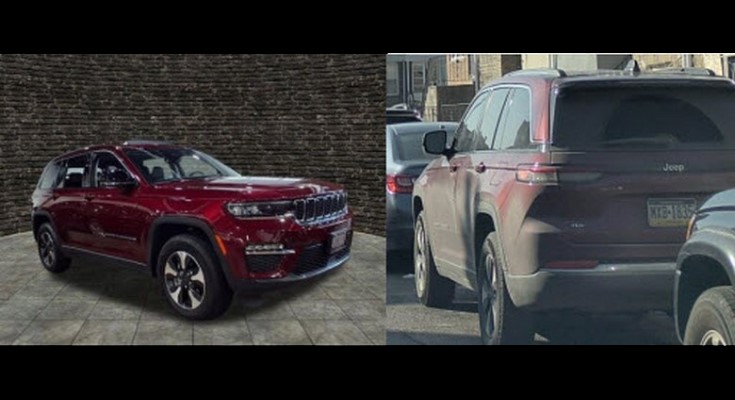When it comes to choosing your next vehicle, the decision between hybrid, electric, and gasoline-powered cars has never been more important. With advancements in technology and a growing emphasis on sustainability, understanding the differences can help you make an informed choice that fits your driving needs and lifestyle.
Hybrid vs Electric vs Gasoline: Which One Fits Your Driving Needs?

Gasoline Vehicles: The Traditional Powerhouse
Gasoline cars have been the mainstay of the automotive industry for over a century. They operate using internal combustion engines (ICEs) that perform a four-stroke process: intake, compression, combustion, and exhaust. This tried-and-true technology offers several benefits:
- Easy Refueling: Gas stations are ubiquitous, making refueling quick and convenient.
- Performance and Power: Gasoline engines are known for their robust performance, providing high speeds and acceleration.
However, gasoline vehicles also come with drawbacks:
- High Emissions: They produce significant carbon emissions, contributing to environmental pollution.
- Frequent Maintenance: Regular oil changes and part replacements like spark plugs are necessary.
- Fluctuating Fuel Prices: Gas prices can be unpredictable, affecting your overall running costs.
These vehicles offer benefits like easy refueling, power, and performance, but also face challenges such as environmental impact and maintenance demands.
Hybrid Vehicles: Bridging the Gap
Hybrid cars combine a gasoline engine with an electric motor to improve fuel efficiency and reduce emissions. There are two main types:
Standard Hybrids
Standard hybrids use both the gas engine and electric motor simultaneously. They recharge their batteries through regenerative braking and the engine itself, eliminating the need for external charging.
- Advantages:
- Better Fuel Economy: They offer better fuel economy and reduced emissions without relying on plug-in charging.
- Self-Charging: No need for charging stations; the battery recharges while you drive.
-
Smooth Ride: The combination of engines offers a quiet and efficient driving experience.
-
Disadvantages:
- Higher Initial Cost: The technology can make hybrids more expensive upfront.
- Complex Maintenance: They require specialized maintenance due to the combination of two power systems.
Plug-in Hybrid Electric Vehicles (PHEVs)
PHEVs have a larger battery than standard hybrids and can be plugged in to recharge. They offer an all-electric range for shorter trips and switch to gasoline power for longer distances.
- Advantages:
- Flexibility: Use electric power for daily commutes and gas for longer trips.
-
Reduced Fuel Costs: Lower reliance on gasoline can save money over time.
-
Disadvantages:
- Charging Requirement: Access to charging stations is necessary to maximize benefits.
- Higher Maintenance Costs: Similar to hybrids, the complexity can lead to increased maintenance expenses.
Electric Vehicles: Driving into the Future
Electric vehicles (EVs) run entirely on electricity, utilizing rechargeable batteries and electric motors. They represent a significant shift towards sustainable transportation.
- Advantages:
- Zero Emissions: EVs have zero tailpipe emissions, promoting a sustainable lifestyle by reducing pollution.
- Lower Operating Costs: Electricity is generally cheaper than gasoline, and maintenance costs are reduced due to fewer moving parts.
- Instant Torque: Provide fast acceleration and improved handling.
- Quiet Ride: Electric motors offer a smooth and silent driving experience.
-
Incentives: Many EVs qualify for federal tax credits and state-level rebates.
-
Disadvantages:
- Higher Upfront Cost: EVs average a higher cost at $66,997 but are also eligible for tax credits under certain conditions.
- Charging Infrastructure: While improving, charging stations are less widespread than gas stations.
- Range Limitations: EVs have a shorter range compared to gasoline vehicles, though this is continually improving.
They operate with a battery and motor system, providing a quieter and more energy-efficient ride with regenerative braking, making them an attractive option for environmentally conscious drivers.
Factors to Consider When Choosing Your Vehicle
Selecting the right vehicle depends on various personal factors:
Driving Habits
- Long Commutes and Road Trips: If you frequently undertake long drives, a gasoline or hybrid vehicle may be more practical due to the ease of refueling and extended range.
- City Driving and Short Trips: For daily city commutes, hybrids and EVs are ideal, offering better fuel efficiency and lower emissions.
Your decision between hybrids and EVs depends on lifestyle, daily commuting, and long-distance travel needs.
Environmental Concerns
- Reducing Carbon Footprint: EVs are the best choice for minimizing environmental impact.
- Balanced Approach: Hybrids offer a compromise between reducing emissions and maintaining the convenience of gasoline engines.
Budget Considerations
- Initial Investment: Gasoline cars have lower upfront costs, but higher long-term expenses due to fuel and maintenance.
- Long-Term Savings: Hybrids and EVs may have higher purchase prices but offer savings through fuel efficiency and lower maintenance costs. Remember that tax incentives help offset the initial costs.
Maintenance and Reliability
- Maintenance Needs: Gasoline and hybrid cars require regular maintenance, while EVs have fewer service requirements.
- Technological Comfort: EVs incorporate advanced technology, which may appeal to those who value innovation but could be daunting for others.
Access to Charging Infrastructure
- Availability of Charging Stations: Consider whether you have access to home charging and the prevalence of charging stations in your area.
- Convenience: Hybrids eliminate the need for charging infrastructure, offering more flexibility.
Charging infrastructure has expanded, with nearly 5,700 public EV charging stations in the U.S. Decisions between hybrids and EVs depend on lifestyle.
Making Your Decision
Ultimately, the best vehicle for you aligns with your personal needs and priorities. If environmental impact and long-term savings are top concerns, an electric vehicle may be the ideal choice. If you desire a balance between efficiency and convenience without drastically changing your driving habits, a hybrid vehicle could be the perfect fit. For those who prefer traditional power and the convenience of widespread refueling options, a gasoline vehicle remains a viable option.
Consider test-driving different models to experience firsthand how each type fits your lifestyle. Dealerships like Lexus of Tulsa and Byers Chrysler Jeep Dodge Ram offer a range of hybrid and electric options, supported by teams ready to assist in selecting the right vehicle for you.
By carefully evaluating your options and considering the factors that matter most to you, you’ll be well-equipped to choose a vehicle that not only meets your driving needs but also aligns with your values and future goals.











